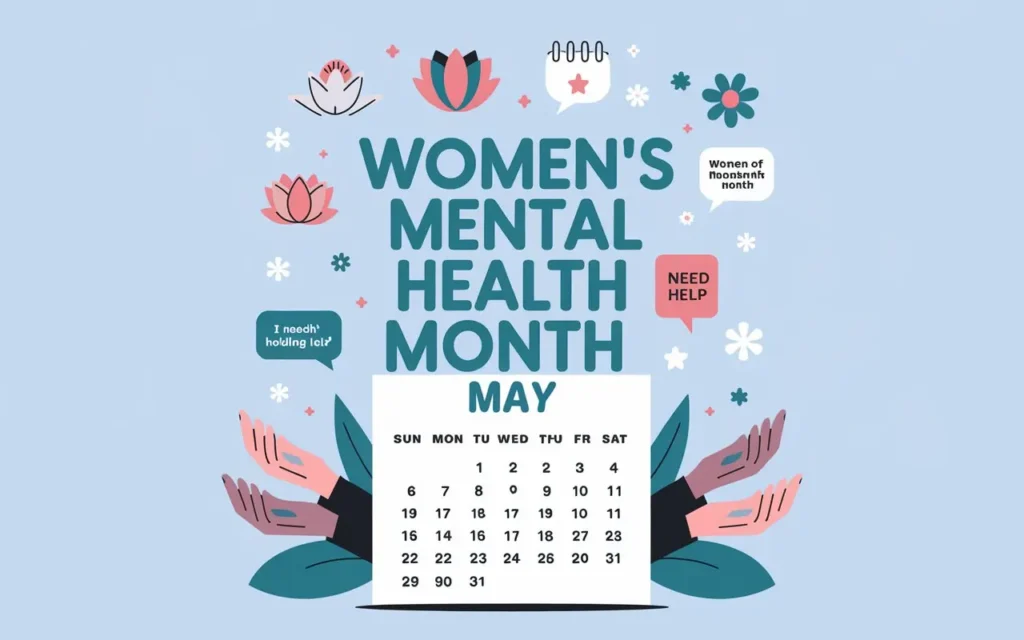Women’s Mental Health Month: A Comprehensive Guide
Women’s Mental Health Month is a crucial time dedicated to addressing the unique mental health challenges faced by women. Mental health is a critical component of overall well-being, and this month aims to raise awareness, provide education, and advocate for better mental health support systems for women across all age groups.
Table of Contents
- Introduction to Women’s Mental Health Month
- The Importance of Women’s Mental Health
- Common Mental Health Challenges Among Women
- Factors Affecting Women’s Mental Health
- Signs and Symptoms of Mental Health Issues in Women
- How to Support Women’s Mental Health
- Resources Available During Women’s Mental Health Month
- Conclusion
- References
Introduction to Women’s Mental Health Month

Women’s Mental Health Month serves as a reminder that women often face unique challenges related to mental health. These challenges can be influenced by biological, social, and cultural factors, all of which play a role in shaping a woman’s mental well-being. This month focuses on raising awareness about mental health conditions, promoting treatment, and encouraging conversations around mental wellness.
The Importance of Women’s Mental Health
Women make up half of the global population, yet their mental health needs are often underrepresented or misunderstood. Mental health is vital because it impacts every aspect of a woman’s life, from personal relationships to professional careers. By focusing on mental health, we can help women lead more fulfilling, balanced lives, reduce the stigma surrounding mental health, and encourage more women to seek help when needed.
Key Reasons to Focus on Women’s Mental Health:
- Higher prevalence of mental health disorders: Women are more likely to experience mental health disorders such as depression, anxiety, and post-traumatic stress disorder (PTSD).
- Unique life events: Pregnancy, postpartum depression, menopause, and hormonal changes significantly impact women’s mental health.
- Social pressures: Societal expectations, body image issues, and the struggle to balance family and career can lead to increased mental stress.
Common Mental Health Challenges Among Women
While anyone can experience mental health issues, certain conditions are more prevalent among women. Some of the most common mental health challenges that affect women include:
1. Depression
Women are nearly twice as likely as men to be diagnosed with depression. Hormonal fluctuations, life events such as childbirth, and societal pressures are contributing factors.
2. Anxiety Disorders
Anxiety disorders, including generalized anxiety disorder (GAD) and panic disorders, affect millions of women globally. Women may experience anxiety related to family responsibilities, work-life balance, or personal safety.
3. Post-Traumatic Stress Disorder (PTSD)
PTSD often occurs in response to trauma, such as domestic violence, sexual assault, or abuse—situations that disproportionately affect women. This can lead to long-term mental health challenges.
4. Eating Disorders
Women, particularly young women, are more likely to develop eating disorders such as anorexia, bulimia, or binge eating disorder. These conditions often stem from societal pressures to meet certain beauty standards, low self-esteem, or trauma.
Factors Affecting Women’s Mental Health
Several factors contribute to the unique mental health challenges women face, including:
1. Biological Factors
Hormonal changes due to menstruation, pregnancy, and menopause can impact mood and mental stability. These biological factors can exacerbate existing mental health conditions or trigger new ones.
2. Social and Cultural Expectations
Women are often expected to juggle multiple roles, including caregiver, breadwinner, and homemaker. This constant balancing act can lead to chronic stress, anxiety, and burnout.
3. Trauma and Abuse
Women are more likely to be victims of sexual abuse, domestic violence, and other forms of trauma, which significantly increases the risk of developing mental health disorders like PTSD and depression.
Signs and Symptoms of Mental Health Issues in Women
Recognizing the signs of mental health issues is the first step in seeking help. Some common symptoms that may indicate a woman is struggling with her mental health include:
- Persistent sadness, hopelessness, or irritability
- Loss of interest in previously enjoyed activities
- Excessive worry or fear
- Changes in appetite or weight
- Sleep disturbances (too much or too little)
- Difficulty concentrating or making decisions
- Feelings of guilt or worthlessness
- Physical symptoms such as headaches or stomach issues without a clear medical cause
How to Support Women’s Mental Health
Supporting women’s mental health is essential to creating a healthier society. Here are some effective ways to offer support:
1. Encourage Open Conversations
Creating a safe space for women to talk about their mental health struggles is critical. Encourage open, non-judgmental conversations where they feel heard and supported.
2. Promote Self-Care Practices
Self-care is crucial for maintaining mental health. Encourage women to prioritize activities that reduce stress, such as exercise, mindfulness, or hobbies that bring them joy.
3. Seek Professional Help
If someone is struggling with severe mental health issues, professional help from a therapist, counselor, or psychiatrist may be necessary. Therapy and counseling offer valuable tools for managing mental health conditions.
Resources Available During Women’s Mental Health Month
There are numerous resources available to women during Women’s Mental Health Month and beyond:
- National Alliance on Mental Illness (NAMI): Provides support groups, education, and advocacy for individuals with mental health conditions.
- Mental Health America: Offers free mental health screenings and resources for women dealing with mental health issues.
- Postpartum Support International: Specifically focuses on mental health resources for women dealing with postpartum depression and other pregnancy-related mental health challenges.
Conclusion
Women’s Mental Health Month is an important time to shine a spotlight on the mental health challenges that women face. By promoting awareness, encouraging open conversations, and providing resources, we can help improve the mental well-being of women everywhere. Remember, mental health is just as important as physical health, and there is no shame in seeking help or supporting those in need.
References
- National Women’s Health Week
- National Alliance on Mental Illness (NAMI)
- Mental Health America
- Postpartum Support International